Search the Special Collections and Archives Portal
Search Results
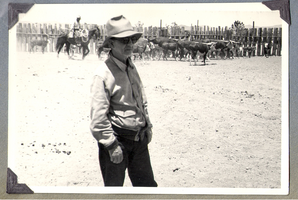
Robert (King) Bow with a cowboy and cattle in a corral at Walking Box Ranch, Nevada: photographic print
Date
Archival Collection
Description
Bell Family Scrapbook scanning, Set 4, proofed 11.04.2010 Robert (King) Bow in a corral at Walking Box Ranch. A cowboy and cattle are in the background
Image
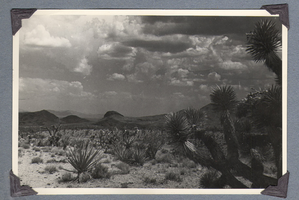
Desert scene, flora, on the ranch: photographic print
Date
Archival Collection
Description
Bell Family Scrapbook scanning, Set 4, proofed 11.04.2010 A Mojave desert scene of Johua trees, Mojave yucca, mountains and clouds in the sky
Image
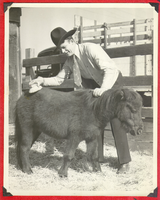
Rex Bell grooming the Shetland pony, Smokey, at the ranch: photographic print
Date
Archival Collection
Description
Bell Family Scrapbook scanning, Set 4, proofed 11.04.2010 Rex Bell (George Francis Beldam)grooming the Shetland pony, Smokey, at the Walking Box Ranch
Image
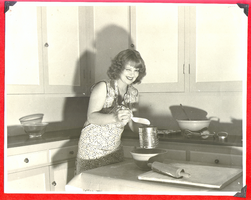
Clara Bow Bell baking in the ranch kitchen: photographic print
Date
Archival Collection
Description
Bell Family Scrapbook scanning, Set 4, proofed 11.04.2010 Clara Bow baking in the ranch house kitchen at Walking Box Ranch
Image
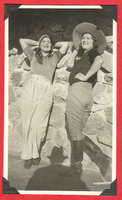
Clara Bow Bell (left) and her friend Marion Lewyn: photographic print
Date
Archival Collection
Description
Bell Family Scrapbook scanning, Set 4, proofed 11.04.2010 Clara Bow (left) and friend Marion Lewyn (right) leaning against the outside of the fireplace at the ranch house at Walking Box Ranch
Image
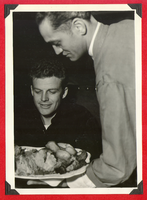
Rex Bell being served dinner by a waiter, Richard- at the ranch: photographic print
Date
Archival Collection
Description
Bell Family Scrapbook scanning, Set 4, proofed 11.04.2010 Rex Bell (George Francis Beldam) being served dinner in the great room by a Richard, a cook and waiter at the Walking Box Ranch
Image
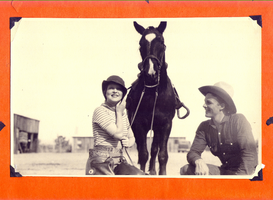
Clara Bow Bell and Rex Bell with horse at Walking Box Ranch, Nevada: photographic print
Date
Archival Collection
Description
Bell Family Scrapbook scanning, Set 4, proofed 11.04.2010 Clara Bow (left) with Rex Bell (George Francis Beldam)(right) and Clara's horse at the Walking Box Ranch
Image
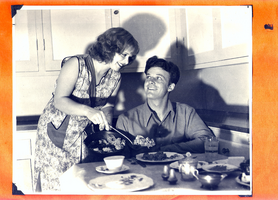
Clara Bow Bell serving Rex Bell at Walking Box Ranch, Nevada: photographic print
Date
Archival Collection
Description
Bell Family Scrapbook scanning, Set 4, proofed 11.04.2010 Clara Bow (left) with Rex Bell (George Francis Beldam)(right) in the kitchen at the Walking Box Ranch. Clara is serving Rex a meal
Image
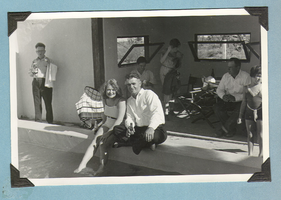
Clara Bow Bell with unidentified friends poolside at Walking Box Ranch, Nevada: photographic print
Date
Archival Collection
Description
Bell Family Scrapbook scanning, Set 4, proofed 11.04.2010 Clara Bow (second from left) and unidentified people around the pool near the ranch house at Walking Box Ranch
Image
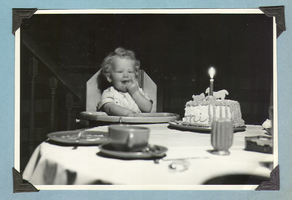
Rex Bell Jr. on his 1st birthday at Walking Box Ranch, Nevada: photographic print
Date
Archival Collection
Description
Bell Family Scrapbook scanning, Set 4, proofed 11.04.2010 Rex Anthony Bell, Jr (Toni Larbow Beldam) on his first birthday with his birthday cake in game room in ranch house at Walking Box Ranch
Image
